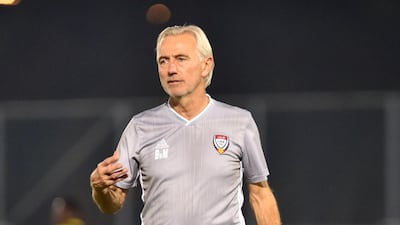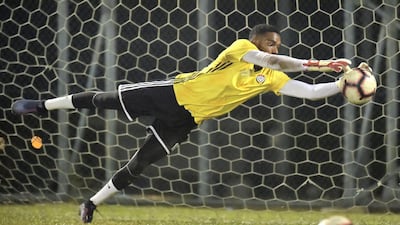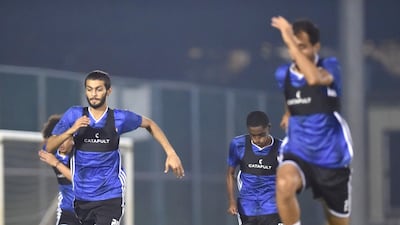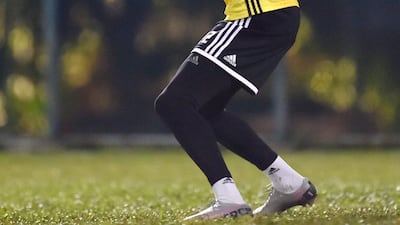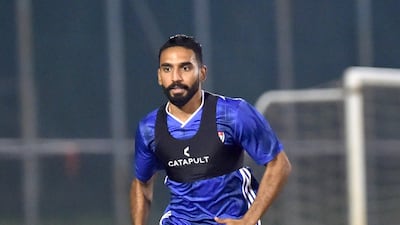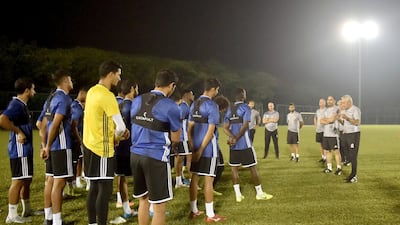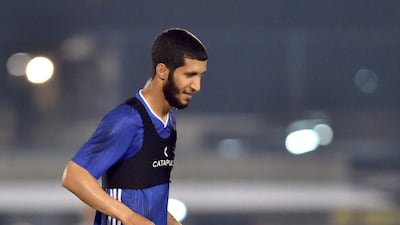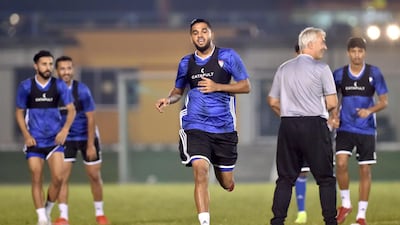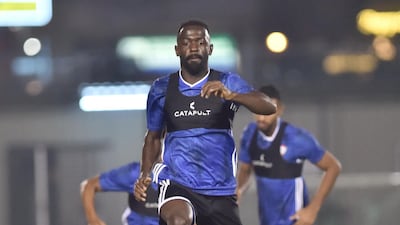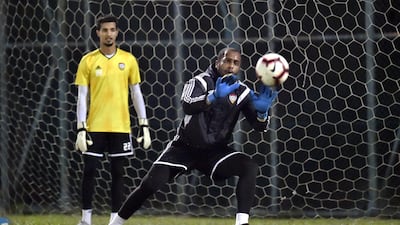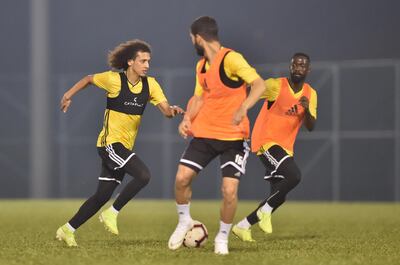A new era begins for the UAE on Tuesday, when Bert van Marwijk takes charge of his first competitive fixture with the national team. It just so happens to be the opener in qualification for the 2022 World Cup – a tricky test against Malaysia in Kuala Lumpur.
Here’s the main talking points going into the match.
Omar Abdulrahman returns
The news the UAE wanted to hear: Omar Abdulrahman confirmed on Monday that he is fit and available for selection. Whether the playmaker will be entrusted to start against Malaysia remains to be seen, but having the 2016 Asian Player of the Year back in the reckoning represents a significant boost for Van Marwijk.
Abdulrahman, 28 this month, has not played competitively for almost one year, not since the knee injury and subsequent surgery sustained with Al Hilal in a Saudi Pro League match last October. Having returned to UAE football this summer at Al Jazira, Abdulrahman has impressed Van Marwijk and his staff with his condition and commitment during camp these past two weeks.
Abdulrahman's talent is obvious, as Malaysia know only too well: in the 10-0 rout in qualification in 2015, he was close to his inventive best in assisting six goals. The intervening period has been fraught with frustration, though, with decisive missed penalties in the 2018 Gulf Cup final and issues relating to discipline and injury. Nevertheless, Abdulrahman appears healed and, more importantly, hungry.
Support for Ali Mabkhout
It has long been a concern: the UAE have relied too heavily on Ali Mabkhout as their main source for goals. The Al Jazira striker, top scorer at the 2015 Asian Cup, has often risen to the challenge, notching another four at the Asian Cup on home soil earlier this year. As such, he is the third highest-scorer in tournament history.
Yet, despite another dominant domestic campaign last season – 20 goals in 19 Arabian Gulf League matches - Mabkhout still struggled somewhat for the national team under Alberto Zaccheroni, his all-round performances dipping drastically. For that, there were a number of factors, including tactics that often left Mabkhout isolated, while injuries to Abdulrahman and Ahmed Khalil cut off supply lines and increased the burden to perform.
Khalil's not available again this time, but Van Marwijk needs to find able deputies for his main striker. The emergence of youngsters Ali Saleh and Zayed Al Ameri therefore bodes well. The UAE have for years needed options up front. They appear to now have some, much to Mabkhout's benefit.
Trusting in youth
As mentioned, Saleh and Al Ameri have injected fresh blood into an aging, and increasingly predictable, national team set-up. The forwards, 19 and 22 respectively, are just two of the more recent call-ups: nine of Van Marwijk’s 26-man squad are 23 and under. Of those, perhaps only Saleh and Jazira centre-back Khalifa Al Hammadi, 20, are expected to start on Tuesday.
The youth is offset by the anticipated presence in defence of Hamdan Al Kamali and Walid Abbas, with both beyond their 30th birthday. However, albeit vastly experienced, there remain worries regarding the make-up of the backline.
Further forward, Van Marwijk’s midfield will make for interesting viewing. Long-time servants Khamis Esmail, Amer Abdulrahman, Mohammed Abdulrahman and Majed Hassan are out, be it purely by choice or forced by injury, leaving Ali Salmeen and Ahmed Barman likely to partner in the centre. Al Ain wingback Bandar Al Ahbabi, meanwhile, seems set for an advanced role since Van Marwijk rates him more highly going forward. Promising youngsters must be trusted, though. Malaysia constitutes a newly constructed squad's initial examination.
Underestimating Malaysia
Van Marwijk was right on Monday to urge caution. Sure, the UAE defeated Malaysia 10-0 in qualification for the 2018 World Cup, at home in September 2015, but they were made to work considerably harder for the three points in the return fixture two months later: the visitors spent the final 30 minutes clinging on for a 2-1 victory.
Since, there has been substantial change, for both sides. In Malaysia's case, they finished runners-up to Vietnam at last December’s Suzuki Cup, and have improved immensely now they employ manager Tan Cheng Hoe's possession-based, attacking style.
Optimism abounds, especially following Thursday’s 96th-minute, 3-2 victory at rivals Indonesia. Comprising largely players from fast-rising side Johor Darul Ta’zim and Perak, the squad know each other well, with Safawi Rashid and Akhyar Rashid clear threats in attack.
As a consequence, the UAE must beware, because they will not have it easy at what promises to be a lively Bukit Jalil Nation Stadium. They could be rusty, too, given warm-up matches against Dominican Republic and Sri Lanka didn’t provide a truly competitive test. In contrast, Malaysia had that in Indonesia.
